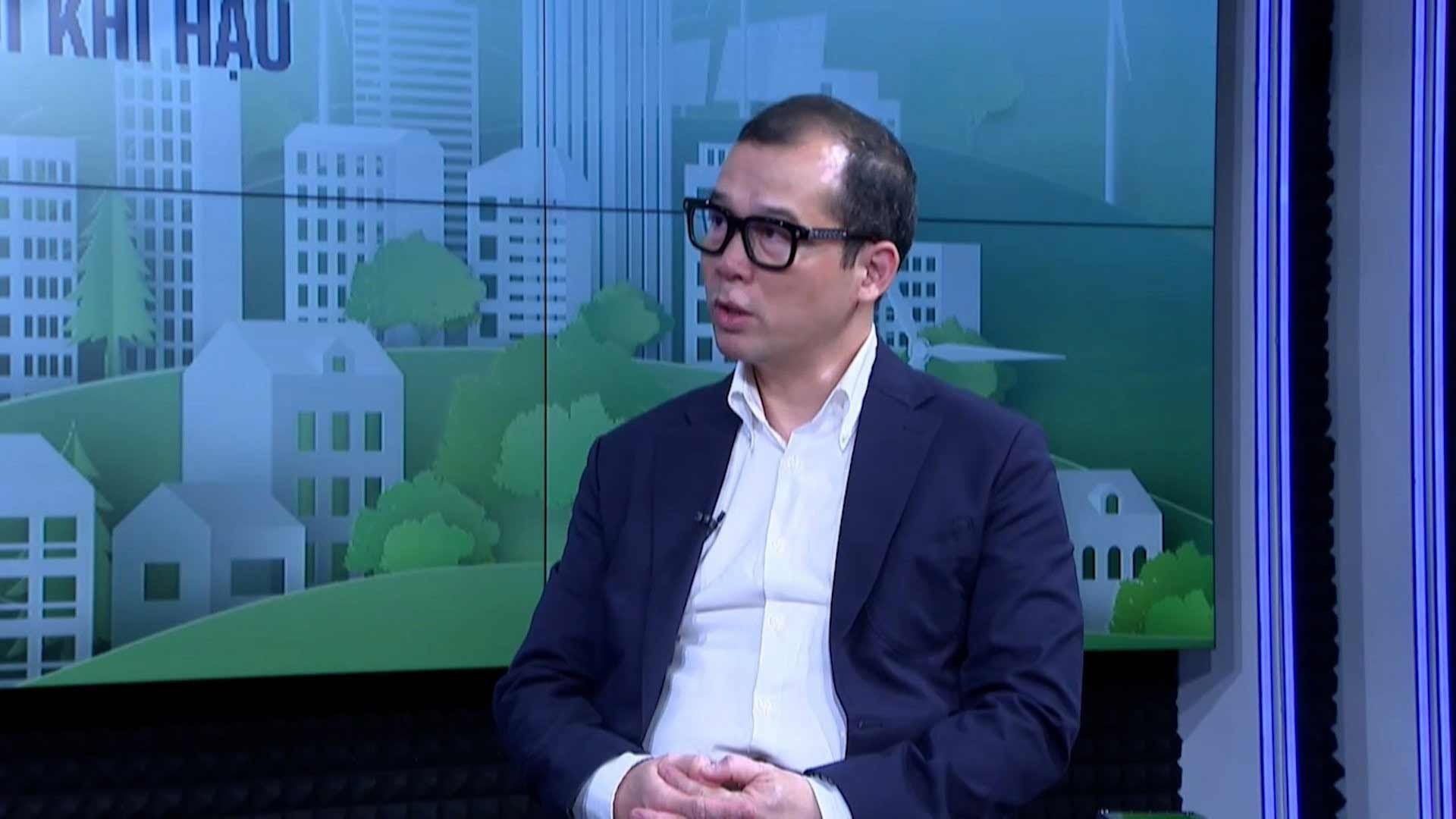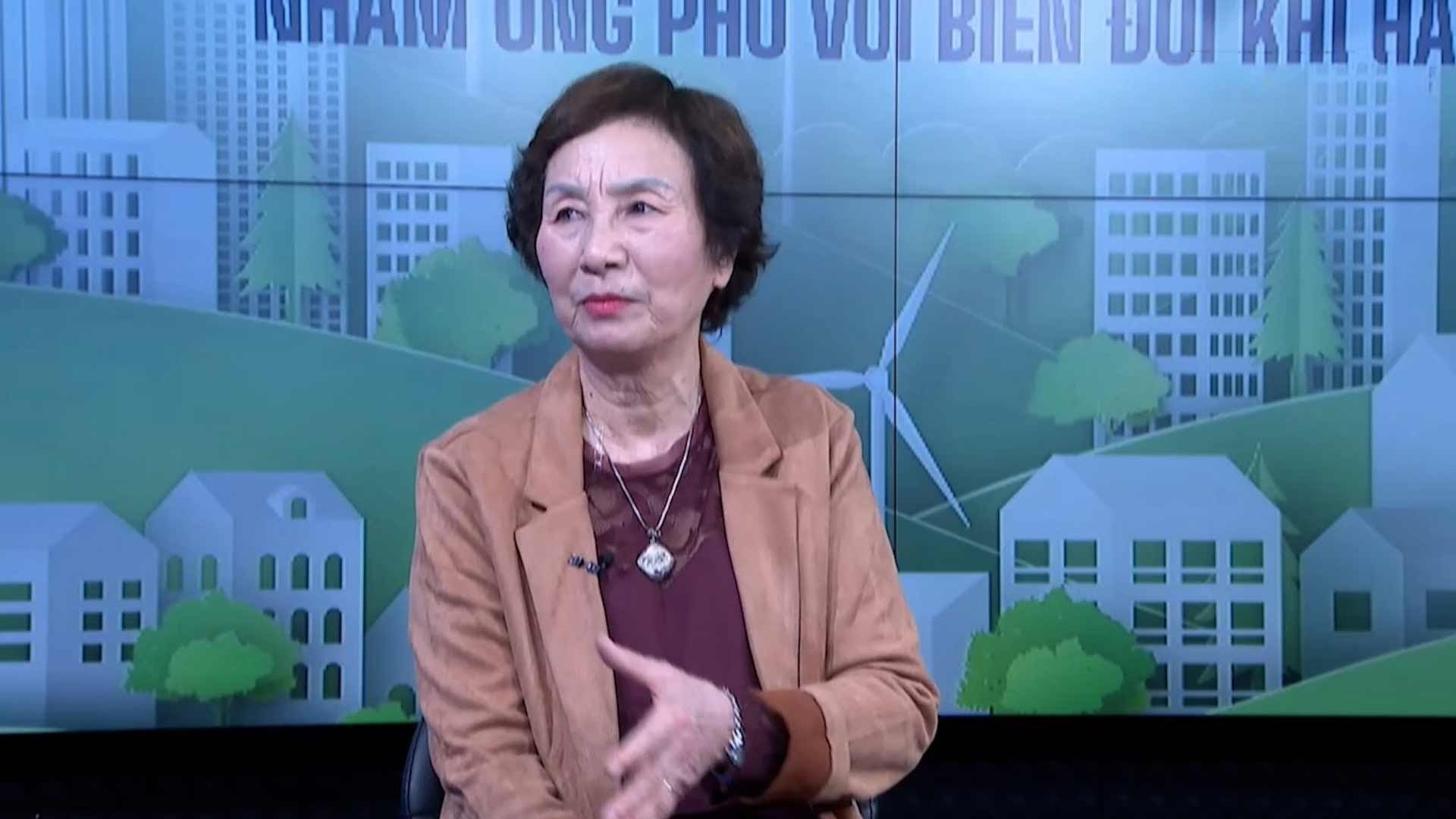There are policies and regulations but need to be more drastic
At the seminar "Net Zero - Reducing greenhouse gas emissions to respond to climate change" held on August 26, Lao Dong Newspaper had an interview with Mr. Luong Quang Huy, Head of the Department of Greenhouse Gas Emission Reduction and Ozone Layer Protection (Department of Climate Change, Ministry of Natural Resources and Environment) and Associate Professor, Dr. Bui Thi An - Director of the Institute of Natural Resources, Environment and Community Development, Former member of the National Assembly's Committee on Science, Technology and Environment.
Speaking at the seminar, Mr. Luong Quang Huy, Head of the Department of Greenhouse Gas Emission Reduction and Ozone Layer Protection (Department of Climate Change, Ministry of Natural Resources and Environment) said that domestically, all of our sectors and all localities have activities to respond to climate change.

Since the national target program on climate change (2008) was issued, we have carried out many activities related to climate change response and all of those activities are closely linked to socio-economic development.
Recently, many companies and businesses have also promoted their corporate responsibility to the community through environmental and social criteria, especially criteria related to climate change response. This has contributed to integrating environmental protection into the supply chain and life cycle of each product.
However, from a global perspective, Mr. Huy said that we still have many limitations in terms of resources and technical capacity. Vietnam needs to improve further and needs to have commitments at the regional level.
Also according to Ms. Bui Thi An - Director of the Institute of Natural Resources, Environment and Community Development, Former member of the National Assembly's Committee on Science, Technology and Environment, "In the coming time, all concepts of green economy, bad emissions... must be clearly understood by everyone. The first implementation organization must make everyone (from management levels to businesses) clearly understand all concepts in order to implement the plan to reduce greenhouse gas emissions and protect the environment".
In addition, Ms. An also said that there are methods for inventorying and controlling greenhouse gases, however, there needs to be a diagram of gas emissions for each industry in order to have specific instructions and achieve the goals we committed to.

"I really want the implementation of environmental protection policies to be applied specifically in each field, because climate change is a very big issue, related to all fields, especially the issue of sustainable development of the country. Currently, I see that there are legal documents, policies, decrees, and circulars, but to apply those things in life, it has not really "entered into the blood" of people and businesses," Ms. An analyzed.
Energy transition is the most important thing in responding to climate change
Regarding climate change response, Mr. Luong Quang Huy said that energy is considered the key and most important sector and needs to mobilize the most resources to implement mitigation solutions, towards the goal of zero net emissions by 2050. However, this is also a big challenge for Vietnam, requiring careful calculation to ensure national energy security and meet the requirements of socio-economic development.
"Currently, the Prime Minister has approved the plan to implement the eighth power plan. In this plan, we have calculated and proposed projects to meet the target of zero net emissions by 2050. However, calculating how to make this plan suitable for both criteria of sustainable energy development, ensuring energy security and achieving zero net emissions is not easy," Mr. Luong Quang Huy analyzed.
Currently, many domestic and foreign enterprises propose energy transition projects. Clean energy projects such as wind power and solar power can be considered as potentials of Vietnam and it can become a bright spot in responding to climate change in general as well as energy transition in particular in the coming time.
According to Ms. An, the government's issuance of the VIII electricity plan is a breakthrough compared to the VII electricity plan. However, the VIII electricity plan also faces many challenges.
"The VIII electricity plan clearly and transparently states how much coal power will decrease and how much clean energy and renewable energy will increase, but the problem is that investing in the VIII electricity plan requires a huge financial potential.
There needs to be a specific plan, for example, what kind of electricity, how to install it, how much capacity and what kind of line... These issues need to be planned and carefully calculated, otherwise, it will be very difficult to achieve the goals we want," Ms. An shared.
Besides, Ms. An also hopes that the Government will have specific instructions to strictly implement the VIII electricity plan, because strictly implementing this plan will greatly contribute to the process of responding to climate change.









